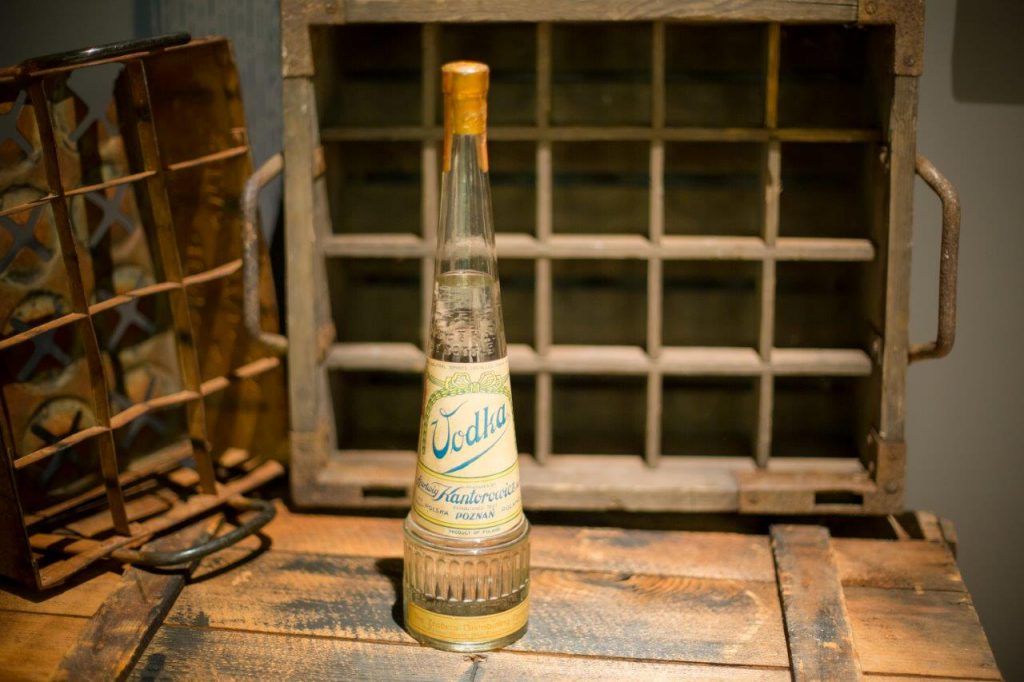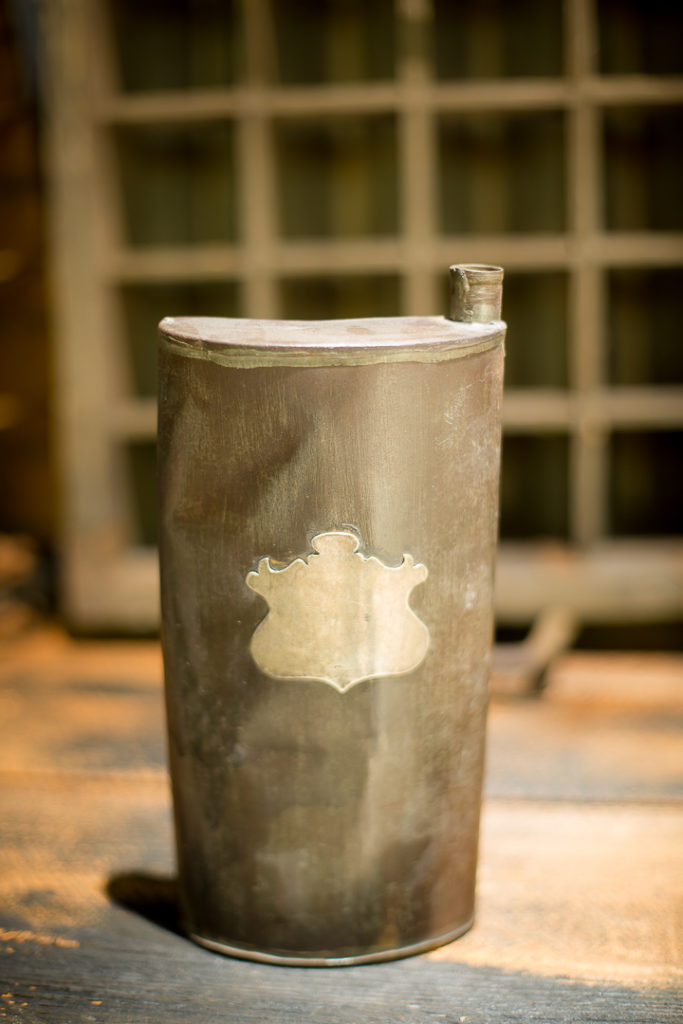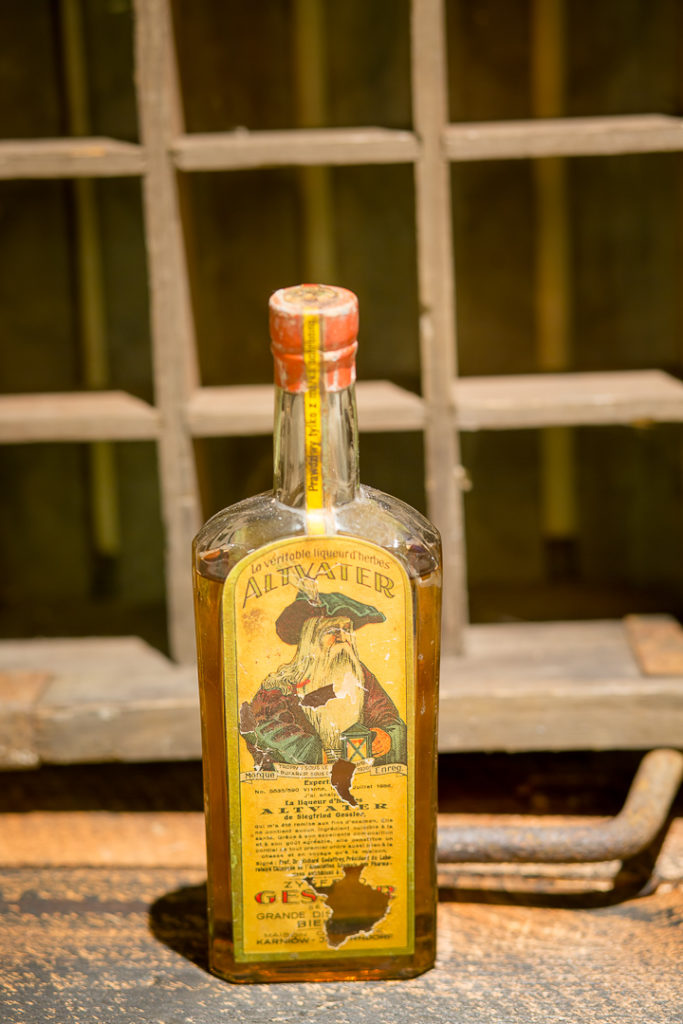The collection of the Vodka Museum were created from the combination of the unique collection of Adam Łukawski and Piotr Popiński, unique in the world. Thousands of bottles, glasses, dishes, vignettes, menus, advertisements, signs, photographs, reproductions, graphics and other objects form a coherent story presenting the fate of production plants, their products and people who from the end of the 18th century were active in the distillery industry. In the center of the Museum there are objects that constitute a real “relic” of the theme: cigarette case and the rod of Józef Baczewski himself – in the second half of the nineteenth century, the owner of the famous family factory in Lviv, father of modern Polish vodka production, in his time the largest producer of alcohol in Poland and one from the largest in Europe. It is the memory of producers, both large and quite local, and their extraordinary achievements that sets the tone of the collection, builds a narrative and tells a story that is an important and rarely described topic in the social history of Poland and the world. The museum could not miss objects that remember important historical events, such as the mess of a soldier from the Napoleonic army left during the retreat of the emperor from Moscow, the shaker used aboard the Queen Elizabeth ship or the original edition of the “Distillery Calendar” from 1895 containing all the then knowledge on about the process of creating vodka.
The museum is divided into spaces, describing and illustrating the main periods in the history of vodka production in Poland, the country that gave it to the world. At the beginning, visitors will get to know two great names from the beginnings of the domestic spirits industry up to the second world war, which set the highest product standards: the Lviv Baczewski family (1782) and Jakub Haberfeld from Oświęcim (1804). They are followed by producers from the period 1814-1848, originating both from the old magnate spheres, for economic reasons interested in developing distilleries in their estates, as well as modern industrialists, winning their fortunes in the conquest of the food market, among others The Castle Industrial Works of Archduke Fryderyk (Cieszyn), Potocki (Łańcut), Fraenkel (Biała), Tarnowski (Dzików), Lubomirski (Przeworsk), Prochownik / Gaede (Poznań), Kantorowicz (Poznań) and Winkelhausen (Starogard).
The second space and the third part were devoted to the second half of the 19th century and the beginning of the twentieth century – one of the “golden periods” of vodka production, when the world was conquered by new solutions not only in the improvement of species and flavors, but also the introduction of a wide advertisement, very decorative and various carafes and richly illustrated labels. As you can see from the selection of exhibits, vodka was produced by all broadly understood Polish lands, from Wielkopolska (Leszno, Poznań, Ostrów, Gniezno) through the “basin” of producers in the center of the country (including Warsaw Reutification, Siedlce, Łódź, Piotrków) and in Silesia, to the most distant Kresy (Luboml, Stryj, Stanisławów, Lwów).
In the third space was also the period of the Second Polish Republic, with a strong presence of the state in the production of vodkas in the form of the State Spiritual Monopoly, with which both traditional and new private enterprises coexisted. A separate place was reserved for the times of the German occupation, areas of the General Governorship and territories incorporated directly into the Reich, as well as for the period of the Polish People’s Republic.



Strona Muzeum Wódki jest publiczna. Administratorem Twoich danych osobowych, które pozostawiasz odwiedzając nasz profil (m.in. imię i nazwisko lub inne Twoje oznaczenie, komentarze, polubienia, identyfikatory internetowe, jest GOOD FOOD CONCEPT SP Z O O SPÓŁKA KOMANDYTOWA z siedzibą w Warszawie (00-866), ul. Żelazna 68. Twoje dane są przetwarzane w celu efektywnego prowadzenia naszego profilu, w tym w celu przedstawiania Ci informacji o naszych inicjatywach i innej aktywności oraz w związku z promowaniem przez nas różnego rodzaju wydarzeń, konkursów, usług oraz produktów, a także w celach statystycznych i analitycznych oraz w celu ustalenia i dochodzenia roszczeń i obrony przed roszczeniami.
Pozostałe informacje o na temat danych osobowych, w tym o zasadach przysługującego Ci prawa sprzeciwu wobec przetwarzania danych osobowych znajdziesz w naszej Polityce Prywatności.